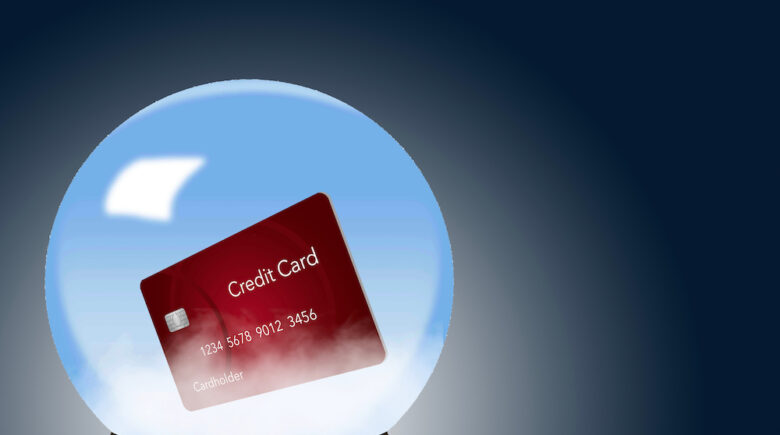A credit card is a very handy financial tool to have. They’re great for emergencies, the mall, and even your daily coffee. But not all people are eligible, and if you’re new to credit or have low credit scores, it can be almost impossible to get approved. As a result, you may be forced to take out an unsecured loan from a bank or credit union, which can get very expensive. Or you can apply for a secured credit card to help improve your credit score. Securing a credit card is different from opening a bank account, although they may have similar amounts on deposit. This guide will outline several options for getting a credit card with bad credit so that you aren’t stuck in an expensive cycle of borrowing money.
#1 – Apply For A Store Card
The first place to look for a credit card is your favorite store. Many of them offer store credit cards to boost store traffic and encourage frequent shopping. Some of the better known store credit cards are from Target, Walmart, and Macy’s. They have great rewards programs so that they can be worth the hassle. Try to get a card with no annual fee and a low balance transfer rate (if you have no plan on paying it off every month).
#2 – Apply For A Rewards Card
Another place to find a credit card is through an online rewards program like the American Express card. These cards usually have higher interest rates and fees, but they can offer better perks. For example, you may be able to get double points when you redeem them for certain things at a certain store. Additionally, some of these cards are worse for your credit score than others. Always pay off the balance on time each month so that your score stays low.
#3 – Find A Card That Offers Rewards For Good Behavior
Some banks offer credit cards for people with low credit scores. This means that if you pay your balance off every month, you should be able to keep a good credit score. Some of these offers include rewards programs, too – just make sure to read the fine print and get the card with the lowest rates and fees. You may also want to consider a card that offers cash back on gas, groceries, or other items because those can lead to savings down the road.
#4 – Apply With A Credit Union
Credit unions usually have lower credit score requirements than banks, offering better savings and interest rates. Many credit unions will require that you work for a certain company, live in a certain area, or have family members who are already members. It’s not always easy to get approved, but it can be worth the effort. Once you’re a member, one may be eligible for a secured credit card that can help boost your score.
#5 – Get A Low Interest Credit Card With A Balance Transfer
Balance transfers with a credit card are very common. You start out the year with a high balance that you know you can’t pay off. Once the balance drops, you can transfer the full amount to your credit card without paying extra interest. This process takes time, though, so try to plan ahead if you’re considering one.
#6 – Apply For A Low Interest Loan
If you have approved credit from a bank or another lender, you will be able to get a secured credit card. These loans usually don’t have high-interest rates, and they almost always have low monthly payments. You can also get longer loan terms, so there’s no need to rush. Look at the financials of the loan carefully before signing the contract, and remember not to apply for more debt than you can afford.
#7 – Try Some Phone And Online Approval Programs
If you’re just getting started with credit, it can be tough to get approved for anything. However, some charities and credit companies offer your first card completely free. These programs are almost always unsecured and won’t affect your credit score at all. They also have very low interest rates and fees, so they should be easy to pay off without a problem. You can find these phone and online approval programs from your local library, charity, or bank.
#8 – Research The Companies You Want To Get Credit From
This may seem obvious, but it’s important to know the companies with which you want to apply for a credit card. This will help you know what kind of services they provide and what kind of account you’ll have access to. Keep in mind that some credit card companies offer limited products that are better suited for people with very high credit scores.
#9 – Look For Prepaid Cards With Low Minimum Payments
There are a few prepaid cards available with attractive terms. Some of these cards have low annual fees, interest rates, and rewards. These cards can work well for people who already have a credit history or are trying to rebuild their scores. Again, read the fine print before applying, and do not take on more debt than you’re comfortable with.
#10 – Get A Secured Credit Card That’s Better For Your Credit
If you’re looking to improve your credit score, it can be extremely difficult to get approved for a secured credit card. Some secured credit cards out there have much higher interest rates and fees than a normal credit card. However, just like unsecured cards, the fees will be dwarfed by the rewards earned. Just make sure to pay off the balance on time each month so that your credit score stays low.
Set Up A Payment Plan
If you’re unable to get a credit card right now, you may be able to set up a payment plan. This is most commonly used for medical expenses and utility bills, but it can work with any sort of debt as well. The last thing you want is to get into a cycle of borrowing money and paying interest on it, so make sure you are getting approved for the right kind of credit – pay off the debt quickly, and avoid accumulating more debt.
A credit card is a very handy financial tool to have. They’re great for emergencies, the mall, and even your daily coffee. But not all people are eligible, and if you’re new to credit or have low credit scores, it can be almost impossible to get approved. As a result, you may be forced to take out an unsecured loan from a bank or credit union, which can get very expensive. Or you can apply for a secured credit card to help improve your credit score. Securing a credit card is different from opening a bank account, although they may have similar amounts on deposit. This guide will outline several options for getting a credit card with bad credit so that you aren’t stuck in an expensive cycle of borrowing money.
#1 – Apply For A Store Card
The first place to look for a credit card is your favorite store. Many of them offer store credit cards to boost store traffic and encourage frequent shopping. Some of the better known store credit cards are from Target, Walmart, and Macy’s. They have great rewards programs so that they can be worth the hassle. Try to get a card with no annual fee and a low balance transfer rate (if you have no plan on paying it off every month).
#2 – Apply For A Rewards Card
Another place to find a credit card is through an online rewards program like the American Express card. These cards usually have higher interest rates and fees, but they can offer better perks. For example, you may be able to get double points when you redeem them for certain things at a certain store. Additionally, some of these cards are worse for your credit score than others. Always pay off the balance on time each month so that your score stays low.
#3 – Find A Card That Offers Rewards For Good Behavior
Some banks offer credit cards for people with low credit scores. This means that if you pay your balance off every month, you should be able to keep a good credit score. Some of these offers include rewards programs, too – just make sure to read the fine print and get the card with the lowest rates and fees. You may also want to consider a card that offers cash back on gas, groceries, or other items because those can lead to savings down the road.
#4 – Apply With A Credit Union
Credit unions usually have lower credit score requirements than banks, offering better savings and interest rates. Many credit unions will require that you work for a certain company, live in a certain area, or have family members who are already members. It’s not always easy to get approved, but it can be worth the effort. Once you’re a member, one may be eligible for a secured credit card that can help boost your score.
#5 – Get A Low Interest Credit Card With A Balance Transfer
Balance transfers with a credit card are very common. You start out the year with a high balance that you know you can’t pay off. Once the balance drops, you can transfer the full amount to your credit card without paying extra interest. This process takes time, though, so try to plan ahead if you’re considering one.
#6 – Apply For A Low Interest Loan
If you have approved credit from a bank or another lender, you will be able to get a secured credit card. These loans usually don’t have high-interest rates, and they almost always have low monthly payments. You can also get longer loan terms, so there’s no need to rush. Look at the financials of the loan carefully before signing the contract, and remember not to apply for more debt than you can afford.
#7 – Try Some Phone And Online Approval Programs
If you’re just getting started with credit, it can be tough to get approved for anything. However, some charities and credit companies offer your first card completely free. These programs are almost always unsecured and won’t affect your credit score at all. They also have very low interest rates and fees, so they should be easy to pay off without a problem. You can find these phone and online approval programs from your local library, charity, or bank.
#8 – Research The Companies You Want To Get Credit From
This may seem obvious, but it’s important to know the companies with which you want to apply for a credit card. This will help you know what kind of services they provide and what kind of account you’ll have access to. Keep in mind that some credit card companies offer limited products that are better suited for people with very high credit scores.
#9 – Look For Prepaid Cards With Low Minimum Payments
There are a few prepaid cards available with attractive terms. Some of these cards have low annual fees, interest rates, and rewards. These cards can work well for people who already have a credit history or are trying to rebuild their scores. Again, read the fine print before applying, and do not take on more debt than you’re comfortable with.
#10 – Get A Secured Credit Card That’s Better For Your Credit
If you’re looking to improve your credit score, it can be extremely difficult to get approved for a secured credit card. Some secured credit cards out there have much higher interest rates and fees than a normal credit card. However, just like unsecured cards, the fees will be dwarfed by the rewards earned. Just make sure to pay off the balance on time each month so that your credit score stays low.
Set Up A Payment Plan
If you’re unable to get a credit card right now, you may be able to set up a payment plan. This is most commonly used for medical expenses and utility bills, but it can work with any sort of debt as well. The last thing you want is to get into a cycle of borrowing money and paying interest on it, so make sure you are getting approved for the right kind of credit – pay off the debt quickly, and avoid accumulating more debt.



